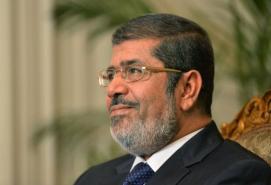BRUSSELS: NATO allies discuss Thursday US plans to end combat operations in Afghanistan in 2013 and shift to a training mission, as the alliance seeks to wind down a war that has dragged on for a decade.
US Defense Secretary Leon Panetta set out the goal as he arrived in Brussels for two days of talks with NATO counterparts on the future of the mission, clouded by a leaked document showing the Taliban confident of victory.
"Hopefully by the mid-to-latter part of 2013, we’ll be able to make a transition from a combat role to a train and advise and assist role," Panetta told reporters aboard his plane.
Panetta’s comments were the first time the US administration had forecast American and allied troops, currently numbering 130,000, could end their combat operations by the second half of next year.
With President Barack Obama facing a tough re-election campaign, the remarks represented the strongest signal yet that the White House wants to wrap up the wars it inherited from George W. Bush. US troops completed their withdrawal from Iraq in December.
Panetta portrayed the approach as in keeping with a gradual NATO plan adopted in Lisbon in November 2010, which calls for handing over security duties to Afghan forces by the end of 2014.
French President Nicolas Sarkozy, who is also facing a difficult election, had appeared to upend the strategy last week when he announced France would withdraw combat forces a year early, in 2013.
But a senior US defense official said it was possible that there was no serious gap between the French stance and NATO’s timeline, depending on the precise details of what Paris planned.
A diplomat said French Defense Minister Gerard Longuet "will try to clarify" the decision and "reassure allies that France does not intend to abandon them."
Longuet is expected to tell his counterparts that a number of French soldiers would stay beyond 2013 to continue the training mission.
Panetta said Washington wanted to see all the NATO allies "respect" the alliance’s timeline.
"We all went in here together and we’ll all go out together, but we have to do it on the basis of a strong alliance and a strong commitment that was made in Lisbon."
The discussions between the defense ministers will help set the agenda for a NATO summit in Chicago where leaders will decide the future of the Afghan mission.
Despite the goal of ending the combat mission next year, the United States had no plans to move up the 2014 deadline for the withdrawal of American and coalition forces, Panetta said.
The NATO alliance had agreed on the 2014 timeline "and I think we ought to stick with that," he said.
Panetta said 2013 would be a "crucial" year for the final transfer of remaining areas to Afghan security forces and "2014 becomes a year of consolidating the transition."
A future training force could include a counter-terrorism mission to strike extremists, along with standard training efforts, he said.
It was unclear how the planned shift from combat to a mainly advisory role would affect US troop levels.
With nearly 90,000 US troops now in Afghanistan, Panetta said "no decision has been made with regards to the level of forces we’ll have in 2013."
By the end of September, the number of US troops is due to drop to 68,000, following the scheduled withdrawal of a "surge force" that deployed in 2010.
Despite NATO assurances that insurgents are on the back foot, a leaked secret NATO document, based on thousands of detainee interrogations, showed the Taliban believe they can reconquer Afghanistan once Western forces are gone.
NATO spokeswoman Oana Lungescu downplayed the impact of the report, saying the Taliban "have suffered tremendous setbacks on the battlefield in the last year."
The report, leaked to British media, also renewed charges that Pakistan’s intelligence service is aiding the Taliban amid already tense relations between Washington and Islamabad.
Pakistan, however, signaled Thursday that it could shortly end a more than two-month blockade against NATO supply trucks in place since US air strikes killed 24 Pakistani soldiers along the porous Afghan border on November 26.

